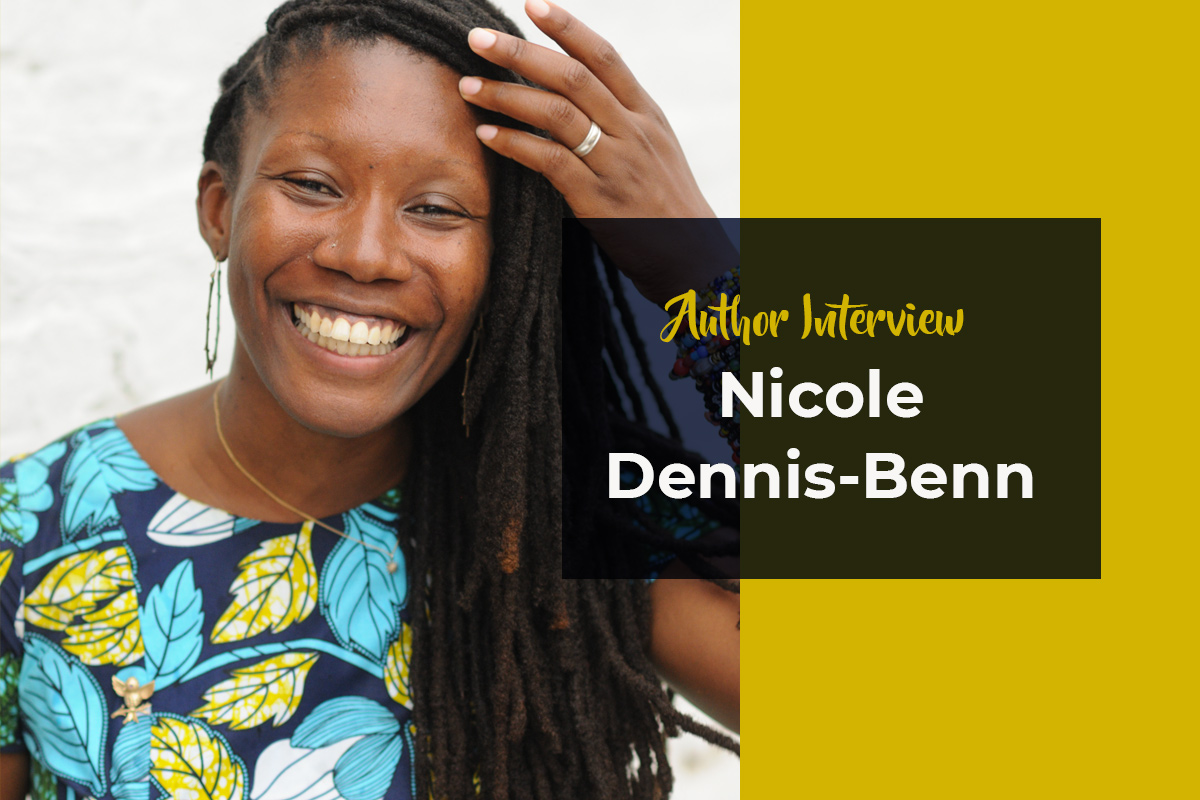
Expertly evoking the jittery streets of New York and the languid rhythms of Jamaica, Patsy weaves between the lives of Patsy and Tru in vignettes spanning more than a decade as mother and daughter ultimately find a way back to one another. We spoke with author Nicole Dennis-Benn about her inspiration, representation in narration, and more.
I feel that Dennis-Benn is unparalleled in writing the insidious unforgivables. The mother who can’t find love for her daughter, the more-than-friend who takes everything you give them and never gives back, the daughter told to be a “good girl” who finds difficulty doing either of those things for the woman who ends up raising her. Like her debut, this novel is filled with characters tormented by the compromises they made but whose character Dennis-Benn refuses to compromise. The painfully recognizable humanity of everyone in Patsy asks us all to reach inside for the empathy we’re capable of for people we wouldn’t normally think to give it to.
Alice, Water Street Bookstore
When Patsy gets her long-coveted visa to America, it comes after years of yearning to leave Pennyfield, the beautiful but impoverished Jamaican town where she was raised. More than anything, Patsy wishes to be reunited with her oldest friend, Cicely, whose letters arrive from New York steeped in the promise of a happier life and the possible rekindling of their young love. But Patsy’s plans don’t include her overzealous, evangelical mother—or even her five-year-old daughter, Tru.
Beating with the pulse of a long-withheld confession, Patsy gives voice to a woman who looks to America for the opportunity to choose herself first—not to give a better life to her family back home. Patsy leaves Tru behind in a defiant act of self-preservation, hoping for a new start. But when Patsy arrives in Brooklyn, America is not as Cicely’s treasured letters described; to survive as an undocumented immigrant, she is forced to work as a bathroom attendant and nanny. Meanwhile, Tru builds a faltering relationship with her father back in Jamaica, grappling with her own questions of identity and sexuality.
Please tell us a little bit about what inspired you to write this book and how this story took shape for you.
I’ve always been inspired to tell the story of the Jamaican working class, especially our women. These are the women I came from. I was born and raised in Kingston, Jamaica. My mother was a secretary, my grandmother cleaned restrooms at a dental school, and my great-grandmother was a helper who sold produce at the markets as a side hustle. When my great-grandmother was a young mother, she left my grandmother in the country to come to town in Kingston to work.
Growing up, I never saw myself or these women depicted on the page. I was a precocious child who liked to listen to grown-folk business, and the stories I overheard were more visceral and immediate than the books I was given to read, which were predominantly white and British. I came of age with those stories I overheard from my family and our community that were swapped as gossip, but underneath that were the souls and humanity of my people. I aspire to write our untold stories as women in a society that silenced us, robbed us of our choices, ownership of our bodies, and made us ashamed of our own voices. I wanted to write in defiance of oppression.
In two sentences or less, what’s something that might surprise Libro.fm listeners about your audiobook?
For Patsy‘s audiobook, I was given more agency. I handpicked Sharon Gordon, a Jamaican actress, to narrate. I wanted somebody who could embody Jamaicans and Patsy herself. I’m very particular about getting the cadence of our language right and there’s nobody better to narrate than a Jamaican. Not that I didn’t enjoy the narration of Here Comes the Sun, which was narrated by Trinidadian actress, Bahni Turpin. I loved it! It’s just that there is something revolutionary about writing in the very language that I was told never to speak while growing up, and to then have another Jamaican read what’s ours out loud.
Have you listened to your own audiobook? If so, what struck you about the narration?
The characters came alive. It was so surreal hearing my own words fill a whole room. Sometimes I’d pause the audio and ask myself, “Did I write that?”
Are you an audiobook listener? If so, what are some of your favorite audiobooks?
I love listening to Toni Morrison read her own books. She has that soothing voice, which is as smooth as her prose.
What have independent bookstores and/or booksellers meant to you personally and professionally?
Independent bookstores are very central to my life as a citizen and as a writer. I love walking to my local bookstore and searching for books to read, whether for myself or my niece and nephews. There’s always someone there who is well-read and willing to help me select the right book. I find that independent bookstores are also more likely to support the people in their communities. When I first published my novel, my local bookstore, Greenlight, prominently displayed my books. So did my local bookstore, Bookophilia and Kingston Bookshop in Jamaica. I felt like a hometown hero.
Header photo by Jason Berger




